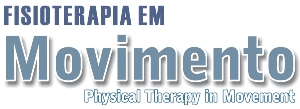Abstract
Introduction:
Children and adolescents with spastic quadriparesis have a worse selective motor control, and studies with this population are still very scarce. The same is true with scientific evidence of one of the methods most used as a physiotherapeutic treatment in this population, the Bobath Concept.
Objective:
To evaluate spine erector muscles activation, gluteus medius and gluteus maximus, through the handling of the Bobath Concept and the sustained kneeling posture in subjects with a diagnosis of severe cerebral palsy; and to compare muscle activation with a reference group, in order to increase the reliability of this study.
Methods:
A cross-sectional study was carried out with 38 children and adolescents with cerebral palsy, classified by GMFCS at levels IV and V, and 20 healthy participants, aged between 3 and 18 years. They were submitted to the handling of the Bobath Concept and to the sustained kneeling posture, with muscle activation obtained by electromyography.
Results:
We observed significant muscle activation during handling in side-sitting, with weight transfer and without the help of another therapist, and in the sustained kneeling posture, for the erector of the spine and gluteus medius.
Conclusion:
The evidence from this study suggests that both the handling in side-sitting and the sustained kneeling posture cause significant muscle activation in the erector of the spine and gluteus medius for severe quadriparesis subjects, GMFCS IV and V, which can contribute to the improvement of postural control and decision-making in physical therapy practice.
Keywords:
Cerebral palsy; Electromyography; Muscles; Physical therapy modalities; Quadriparesis

 Thumbnail
Thumbnail
